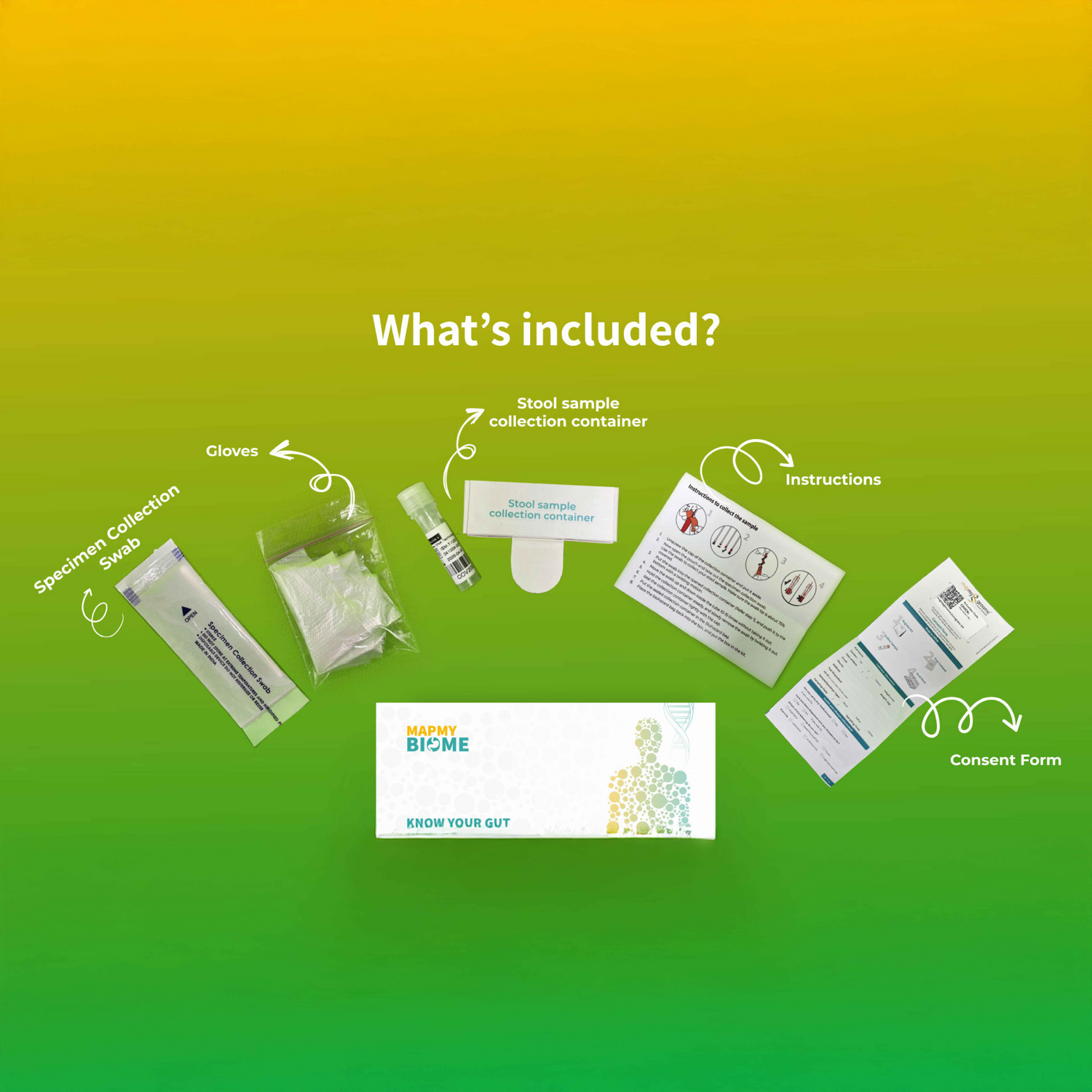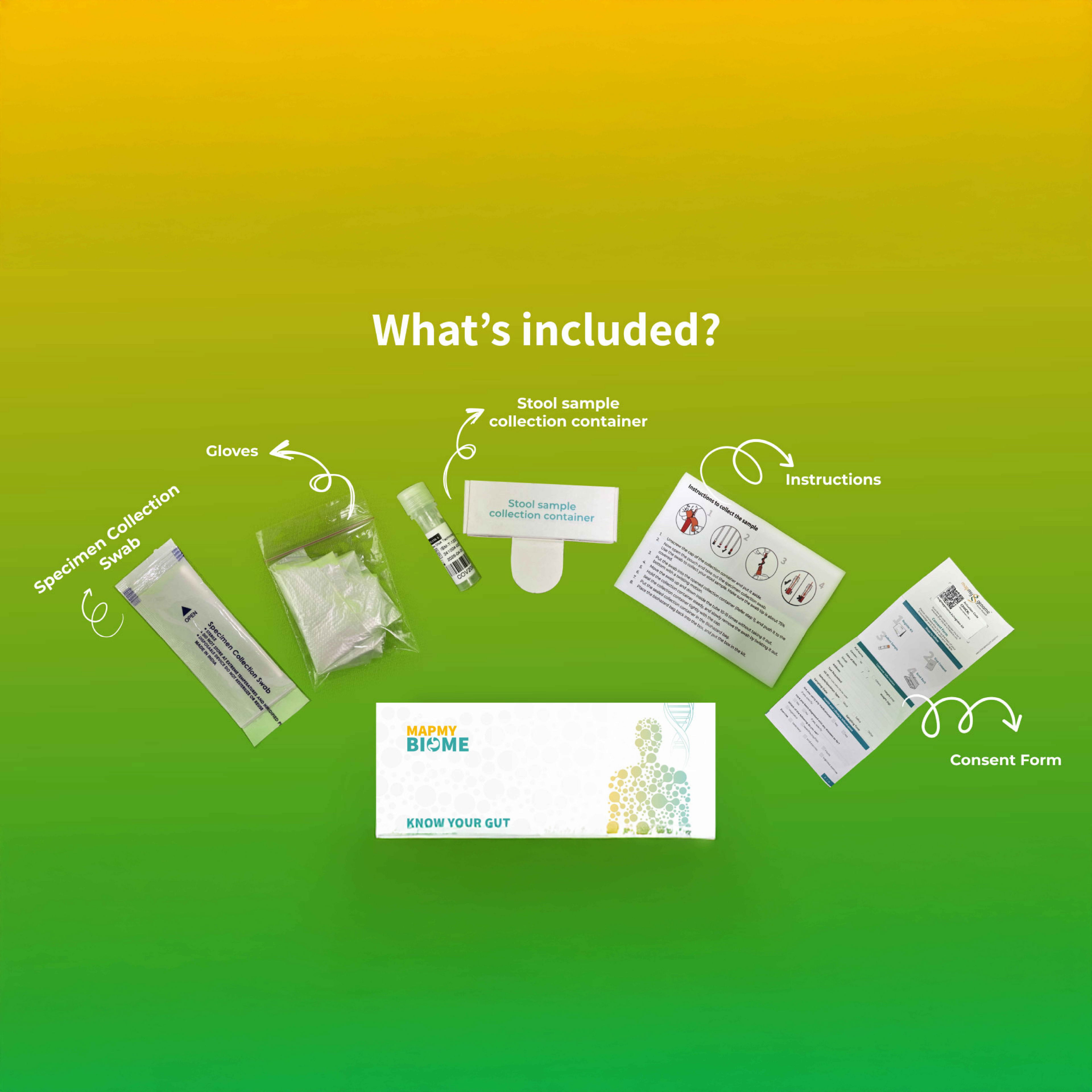We've all experienced that fiery sensation in our chest after a particularly spicy meal – the dreaded acidity, also known as acid reflux or heartburn. But did you know that this common discomfort could be having a significant impact on your gut microbiome, the complex community of microorganisms living in your digestive tract? Let's dive into the connection between acidity and your gut health, and explore how a gut microbiome test like MapmyBiome can offer valuable insights.
Understanding Acidity and the Gut
Acidity occurs when stomach acid, which is essential for digestion, flows back up into the esophagus. While the stomach lining is protected from this acid, the esophagus isn't. This backflow can cause a burning sensation, inflammation, and even damage to the esophageal lining over time.
Your gut microbiome, consisting of trillions of bacteria, fungi, viruses, and other microorganisms, plays a crucial role in digestion, nutrient absorption, immune function, and even mental health. This delicate ecosystem can be disrupted by various factors, including acidity.
The Impact of Acidity on the Gut Microbiome
When stomach acid frequently refluxes into the esophagus and potentially beyond, it can create a cascade of effects that impact the gut microbiome:
- Inflammation: The acidic backflow can cause inflammation not only in the esophagus but also in the gut lining itself. This inflammation can disrupt the balance of gut bacteria, potentially leading to a decrease in beneficial bacteria and an increase in harmful ones.
- Reduced Diversity: A healthy gut microbiome is characterized by a diverse range of bacterial species. This diversity is crucial for maintaining a balanced ecosystem and supporting various gut functions. Acidity can reduce this diversity, as some beneficial bacteria are more susceptible to changes in pH or the inflammatory environment caused by acid reflux. Think of it like a diverse garden; if some plants die, the garden's overall health and resilience suffer.
- Changes in Bacterial Composition: Acidity can not only reduce the overall diversity but also alter the specific types of bacteria present. Some bacteria may thrive in the altered environment, while others struggle to survive. This can lead to an imbalance, with an overgrowth of certain bacteria and a reduction in others, potentially disrupting the gut's normal functions.
- Medication Effects: Medications often used to treat acidity, such as proton pump inhibitors (PPIs), while helpful for symptom relief, can also affect the gut microbiome. Studies have shown that PPIs can alter the composition of gut bacteria, potentially leading to an overgrowth of harmful bacteria and a reduction in beneficial ones. This is a complex area of research, and the long-term effects are still being studied.
Which Bacteria are Involved?
While research is ongoing to fully understand the intricate relationship between acidity and the gut microbiome, some key players have been identified. Helicobacter pylori (H. pylori) is a bacterium that can thrive in the acidic environment of the stomach and is a known cause of ulcers and gastritis. It can also contribute to changes in the gut microbiome, although its exact role is complex and varies. Beyond H. pylori, changes in the relative abundance of other bacterial groups can occur, but more research is needed to pinpoint specific species and their interactions in the context of acid reflux.
How MapmyBiome Can Help
This is where a gut microbiome test like MapmyBiome can be particularly valuable. By analyzing your gut microbiome, MapmyBiome can provide insights into:
- The State of Your Gut Diversity: The test can reveal if your gut microbiome has reduced diversity, which can be a consequence of chronic acidity.
- Bacterial Imbalances: MapmyBiome can identify potential imbalances in your gut bacteria, including the presence of H. pylori or other bacteria that may be contributing to or exacerbated by acid reflux.
- Personalized Recommendations: Based on your results, MapmyBiome provides personalized recommendations for diet, prebiotics, and probiotics that may help to restore balance and improve your gut health in the context of your acidity.
Important Note: MapmyBiome and other gut microbiome tests are not a substitute for professional medical advice. Always consult with your doctor to discuss your acidity, any gut-related symptoms, and the interpretation of your test results. They can help you create a comprehensive management plan that addresses both your acidity and gut health.
What You Can Do (Beyond Testing)
Regardless of whether you choose to do a gut microbiome test, there are several steps you can take to support your gut health while managing acidity:
- Eat a Balanced Diet: Focus on whole, unprocessed foods, including plenty of fruits, vegetables, and whole grains. Limit fatty, spicy, and acidic foods that can trigger reflux.
- Consider Probiotics and Prebiotics: Probiotic supplements or foods containing live bacteria may help to restore balance to your gut microbiome. Prebiotics, which are non-digestible fibers that feed your gut bacteria, can also be beneficial.
- Manage Stress: Chronic stress can exacerbate both acidity and gut issues. Practice stress-reducing techniques like meditation, yoga, or deep breathing exercises.
- Maintain a Healthy Weight: Excess weight can put pressure on the abdomen, increasing the risk of acid reflux.
- Avoid Smoking and Excessive Alcohol: Both smoking and alcohol can weaken the lower esophageal sphincter, making acid reflux more likely.
The Bottom Line
Acidity can indeed have a significant impact on your gut microbiome, potentially leading to imbalances, reduced diversity, and altered bacterial composition. By addressing acidity and taking proactive steps to support your gut health, including potentially using a tool like MapmyBiome, you can improve your overall well-being and reduce the risk of long-term complications. Remember, consulting with a healthcare professional is crucial for personalized advice and treatment.















